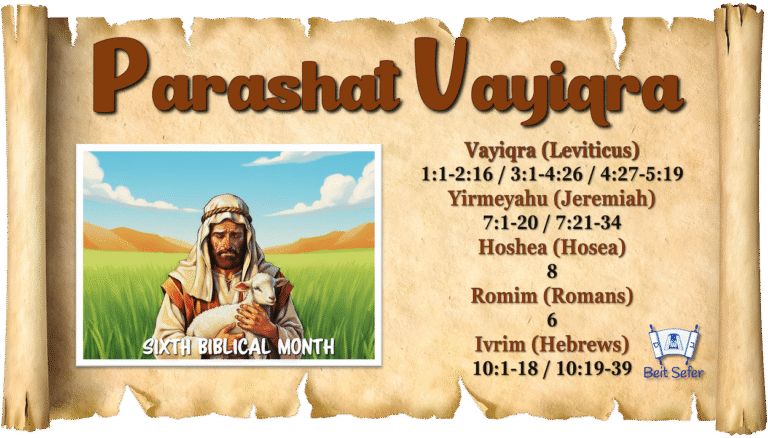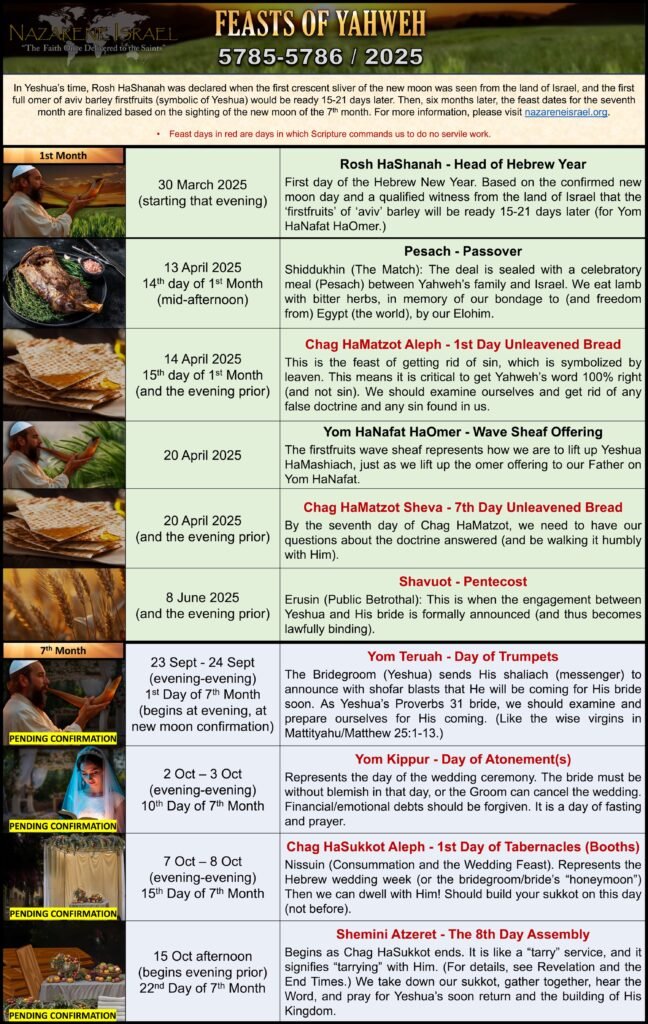Parashat Vayiqra – Year 3 – The Weight of Sin.
Shabbat Shalom, Nazarene family.
This week we will study the parashat Vayiqra, portion of year 3, where we will see how Yahweh teaches what to do when someone sins unintentionally, whether it be an ordinary person, a leader, or the entire community. We will learn that even unintentional mistakes need to be acknowledged and brought before Him. We will read that there are different offerings depending on the situation, showing that Yahweh values sincerity and the desire to make things right. We will also see that guilt, even if unintentional, requires attention, and we will learn that He provides a way of forgiveness to restore our relationship with Him.
Vayiqra (Leviticus) 4:32-33
32 ‘If he brings a lamb as his sin offering, he shall bring a female without blemish.
33 Then he shall lay his hand on the head of the sin offering, and kill it as a sin offering at the place where they kill the burnt offering.
This week corresponds to the reading of the texts (in bold):
- Vayiqra (Leviticus) 1:1-2:16 / 3:1-4:26 / 4:27-5:19
- Yirmeyahu (Jeremiah) 7:1-20 / 7:21-34
- Hoshea (Hosea) 8
- Romim (Romans) 6
- Ivrim (Hebrews) 10:1-18 / 10:19-39
Summary of the weekly study, Year three:
Vayiqra (Leviticus) 4:27-5:19
In these verses, we are shown that even sins committed unintentionally are important before Yahweh and should not be ignored. We will see that every person, whether a member of the people, a leader, or a priest, needs to acknowledge their faults and bring the appropriate offering. We will learn that restoration does not depend on social status, but on obedience to the command to acknowledge guilt and seek forgiveness. We will read that Yahweh provides a righteous and accessible path for all. In this passage, we learn that His forgiveness is always available when we approach Him with sincerity and humility.
Hoshea (Hosea) 8
In these verses, we see that Israel claims to know Yahweh, but their actions reveal otherwise. We will learn that they raised up kings and princes without His guidance, worshipped golden calves, and sought help from foreign nations. We will read that, having sown the wind, they will reap the whirlwind, receiving ruin and dispersion as a consequence of their disobedience. We will see that their rejection of the Torah and their trust in idols leads to the destruction of their altars and the loss of their harvest. In this passage, we learn that turning away from Yahweh brings judgment, and true security is found only in being faithful to Him.
Ivrim (Hebrews) 10:19-39
In these verses, we will see that thanks to Yeshua’s work, we have full confidence to approach the Most Set-Apart Place, not because of our own merits, but because of the new and living way that He opened with His sacrifice. We will learn that we must remain steadfast in the faith, encouraging one another and not neglecting to meet together. We will also read a serious warning about the danger of voluntarily turning away after knowing the truth. We will see that perseverance is necessary to receive what has been promised. In this passage, we learn that faithfulness and trust in Yeshua sustain us until we reach the eternal reward.
–
Enjoy this fun activity with the whole family. Inside you will find development questions for the three weekly sections (Torah, Haftarah and Brit Chadasha). While the older ones discuss the questions and their answers, the younger ones can color the picture related to the teaching, solve a maze, find the 7 differences and much more. We encourage you to do it week by week and instill in your children the habit of studying Yahweh’s word as a family.
We hope you and especially your sons and daughters enjoy this effort. For it is through the study of the Scriptures that we can come to understand the love and care that Yahweh has always had for us. And also to perceive that He has been taking care of even the smallest detail, so that we can take care and enjoy all that He gives us. That is why it is so important that our children learn and grow up knowing that they are loved by the Creator of all that exists.
Shalom.
To view the Tanach studies, click here
To view the Brit Chadasha studies, click here




